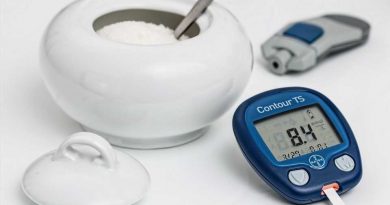Heart disease: Risk factors associated with depression symptoms warns new study
Heart disease: Doctor explains how to reduce risk
We use your sign-up to provide content in ways you’ve consented to and to improve our understanding of you. This may include adverts from us and 3rd parties based on our understanding. You can unsubscribe at any time. More info
Heart disease refers to a group of diseases that affect the heart and blood vessels of your body. These diseases can affect one or many parts of your heart and /or blood vessels. A person may be symptomatic (physically experience the disease) or be asymptomatic (not feel anything at all). A new study has warned depression equally increases a person’s risk for heart disease.
Cardiovascular risk factors are associated with an increased risk of depression in older adults, says a new study published in the journal PLOS ONE by Sandra Martín-Peláez of University of Granada, Spain, and colleagues.
Cardiovascular disease and depression are thought to be closely related due to similar risk factors, including inflammation and oxidative stress.
Although it has been shown that depression could be a risk factor for developing cardiovascular disease, studies analysing the potential impact of cardiovascular health on developing depression are scarce until now.

In the study, the researchers used data from an ongoing six-year multi-centre randomised trial in Spain.
The effect of a Mediterranean Diet on overweight men aged 55-75 and women aged 60-75 was investigated.
Researchers looked at 6,545 individuals with no cardiovascular or endocrine disease.
A cardiovascular risk score according to the Framingham-based REGICOR function was calculated for each person, dividing participants into low (LR), medium (MR), or high/very high (HR) cardiovascular risk groups.
Depressive status was gauged using a questionnaire at baseline and after two years of follow-up.
The study found that at baseline, women in the HR group showed higher odds of depressive status than LR women.
In addition, among all participants with baseline total cholesterol below 160 mg/mL, MR and HR individuals showed higher odds of depression than LR.
On the contrary, among participants with total cholesterol of 280 mg/mL or higher, MR and HR individuals had a lower risk of depression than LR.

After two years, during which time all individuals were instructed to follow a Mediterranean Diet as part of the trial, participants, on average, decreased their depressive status score, with the greatest decreases seen for MR and HR participants with high baseline cholesterol levels.
The authors concluded that high and very high cardiovascular risk are associated with depressive symptoms, especially in women, and that the role of other factors, such as adherence to the Mediterranean Diet, deserves further research.
“High cardiovascular risk, especially in women, is associated with symptoms of depression in the elderly,” wrote the study authors.
Previous studies have also found that depression, schizophrenia, and bipolar disorder (BPD), as well as other mental disorders such as anxiety disorders have been associated with a range of behaviours that may increase the risk of cardiac morbidity and mortality.
People experiencing depression, anxiety, stress, and even post-traumatic stress disorder (PTSD) over a long period of time may experience certain physiologic effects on the body, such as increased heart rate and blood pressure, reduced blood flow to the heart, and heightened levels of cortisol.
If concerned about your mental health, it is imperative to speak with a professional or your GP for help.
For confidential support call the Samaritans in the UK on 116 123 or visit a local Samaritans branch.
Source: Read Full Article



